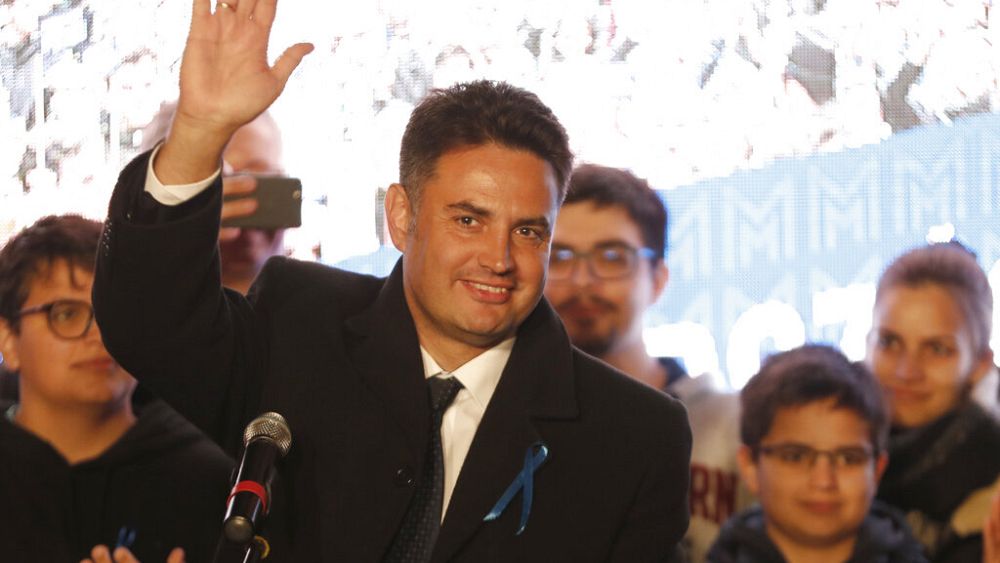
Conservative independent candidate Peter Márki-Zay on Sunday won an opposition race in Hungary, in weekend primaries to decide who runs against Prime Minister Viktor Orbán in national elections next spring.
Márki-Zay, a moderate conservative mayor who has returned to Hungary after living in the United States, becomes the joint nominee of a six-party opposition coalition which will lead a challenge to the right-wing populist.
He became the presumptive winner of the second round of the primary when his opponent, liberal social democrat Klara Dobrev, conceded the race Sunday evening.
With roughly 98% of votes counted, Márki-Zay led by more than 13 percent.
At a Sunday campaign event in Budapest, Márki-Zay called his victory “a revolution of the ordinary people,” and encouraged supporters of all opposition parties to get behind him going into elections scheduled for April.
Márki-Zay now has the pledged support of all of Hungary’s six major opposition parties, which cover a range across the political spectrum from left to moderate to right-wing.
Under the political catchphrase “anyone but Orbán”, the parties have vowed to put aside ideological differences and get behind a single joint candidate in an effort to oust the prime minister and his ruling Fidesz party.
They say such cooperation is the only way to overcome an unbalanced media environment and an election system designed by Fidesz that gives it an unfair advantage.
Fidesz has dominated Hungarian politics for over a decade and Orbán has used his two-thirds majority in parliament to alter the political system to entrench his and his party’s political power.
Márki-Zay burst onto the political scene in 2018 when he stood as an independent and won the election to become mayor of a small southern pro-Orban town, Hódmezővásárhely.
He entered the primary race as an independent without any political support or financial backing of the opposition parties.
A self-proclaimed conservative Christian, he is a father of seven who claims he can mobilize voters from across the political spectrum including disaffected Fidesz supporters.
In an interview with The Associated Press on Sunday, Márki-Zay said that his victory was “very positive news for all Hungarians, because it shows that parties alone are not enough.”
He pledged to work with all members of the opposition coalition against Orbán’s “corrupt dictatorship”.
“This is bad news for Fidesz,” he said. “We are very happy and very hopeful that next year we can also prove we can build a coalition that can change the history of Hungary.”
The primary election was the first of its kind in the history of the Central European country, and in the second round mobilised 662,016 opposition sympathisers to cast ballots for one of the two remaining candidates.
That was nearly 30,000 more voters than took part in the first round of the primary, which closed on September 28.
Earlier on Sunday, around 700 volunteers representing all six opposition parties filled three floors of a building in Budapest to count the hundreds of thousands of ballots arriving from around the country.










